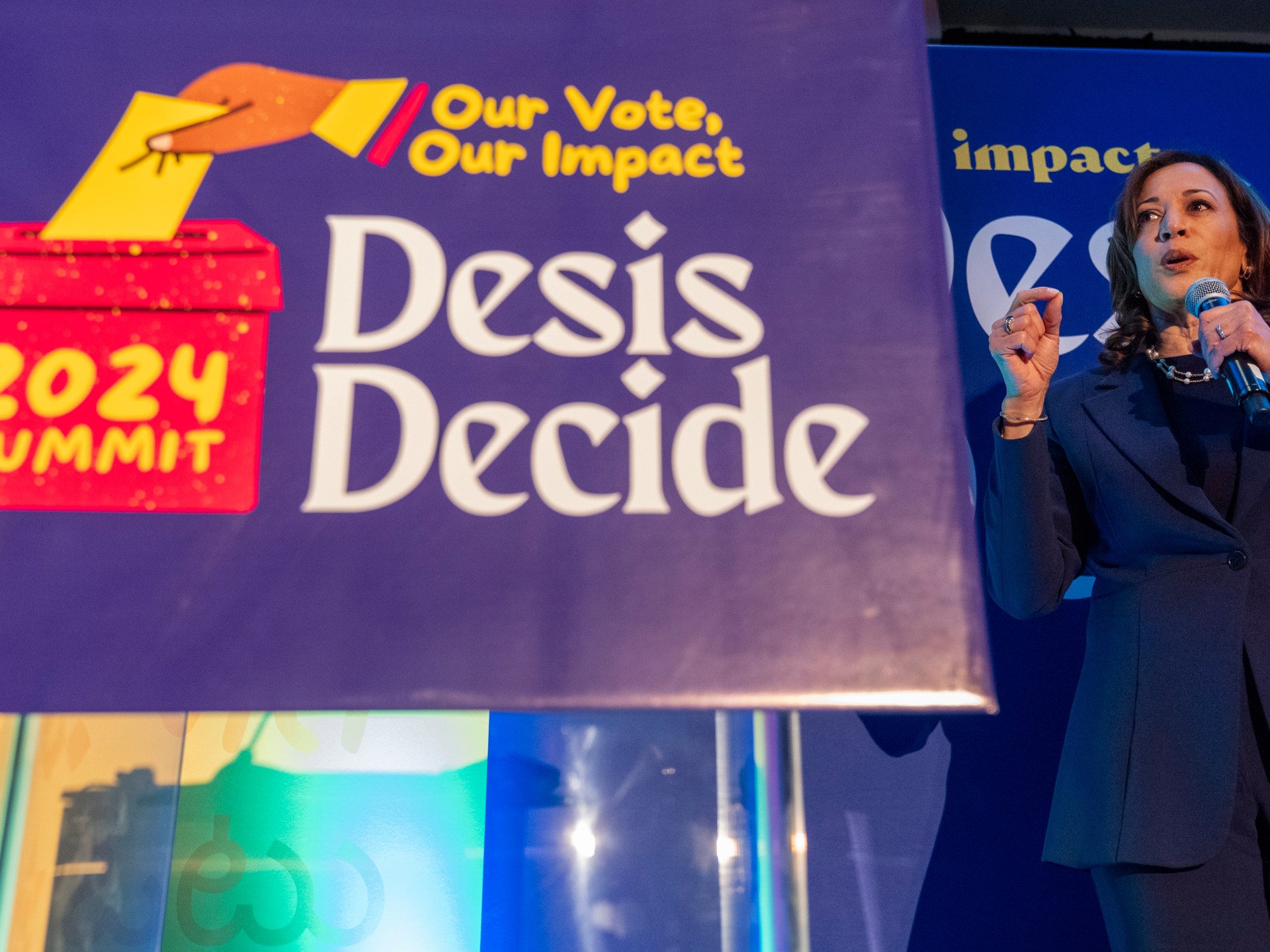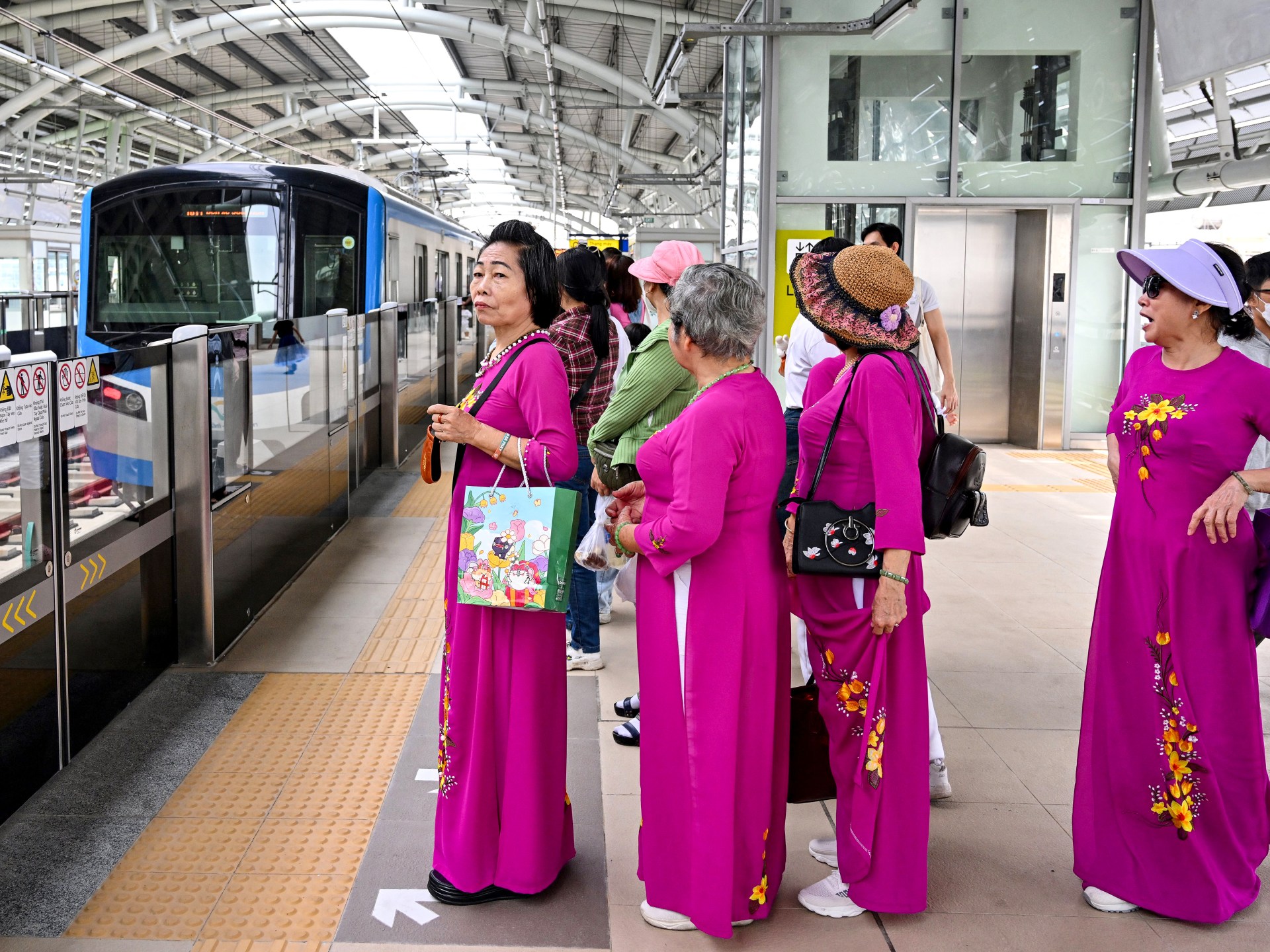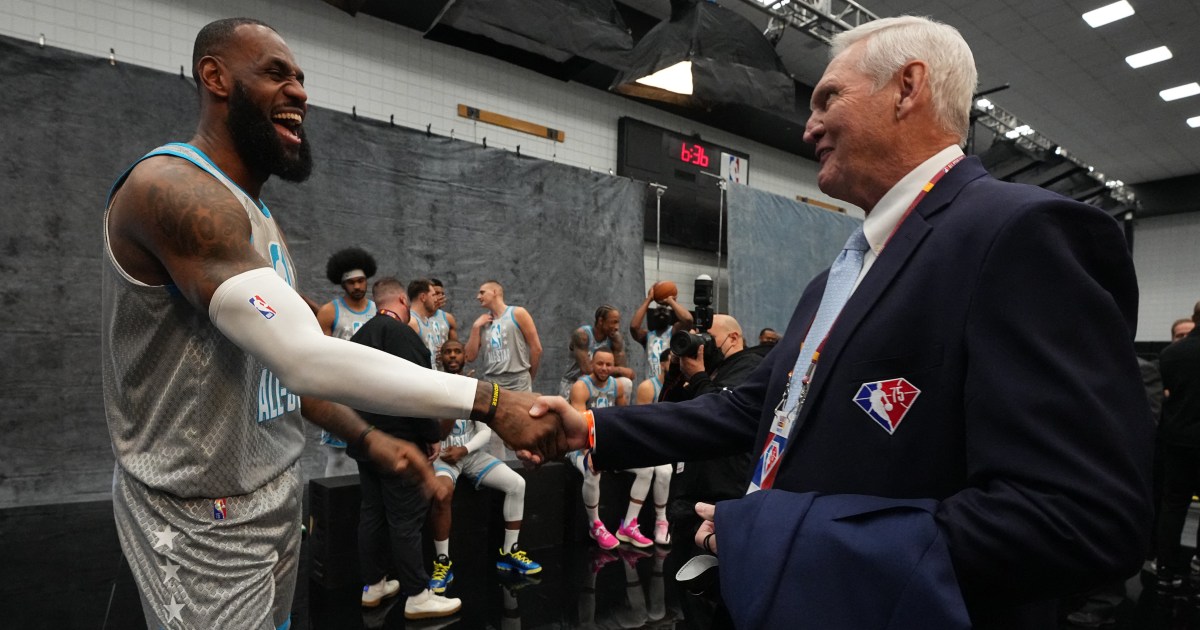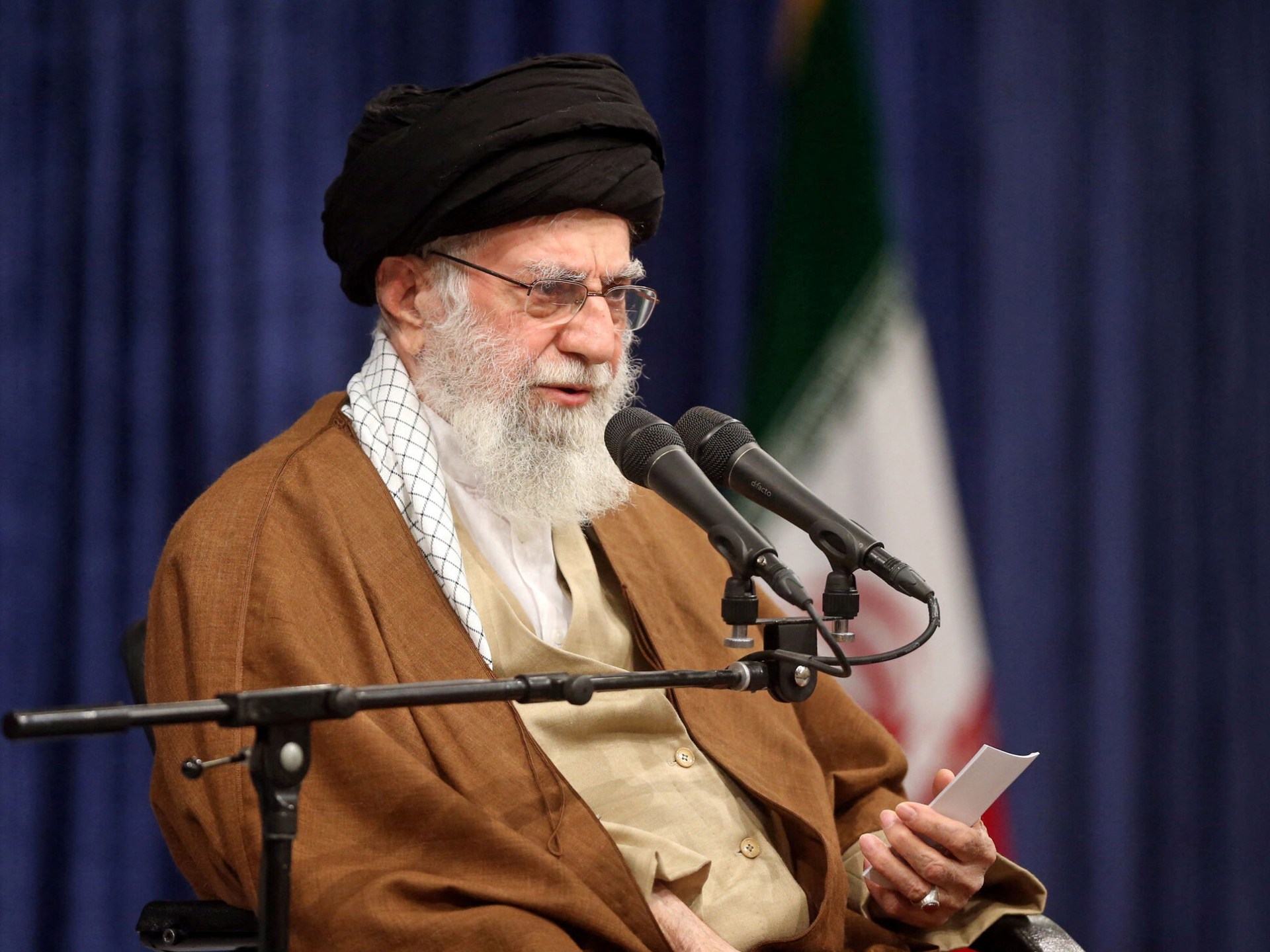Democratic presidential candidate Kamala Harris is projected to lose a segment of her party’s traditional share of Indian American voters – who have historically sided with the Democrats – in the 2024 United States election, a new survey of the community’s political attitudes has found.
Even though Harris could become the first ever Indian American president of the US, a survey by the Carnegie Endowment for International Peace has found that she is likely to secure fewer votes from the community than incumbent President Joe Biden did in 2020.
An estimated 61 percent of respondents from the community will vote for Harris, the survey found, down by nearly 4 percent as compared to the last presidential election in 2020.
The 5.2 million-strong Indian American community is the second-largest immigrant bloc in the US after Mexican Americans, with an estimated 2.6 million voters eligible for casting a ballot for the November 5 election.
There has been a decline in the community’s attachment to Harris’s party as well, with 47 percent of respondents identifying as Democrats, down from 56 percent in 2020. Meanwhile, the researchers noted “a modest shift in the community’s preferences”, with a slight uptick in willingness to vote for the Republican nominee, former President Donald Trump.
Small but influential
Both parties have ramped up their outreach to the immigrant group in the last few years as the community continues to grow its political clout and influence. While Harris is today the face of the party, several Indian Americans have gained prominence on the Republican side too – from former presidential contender and ex-ambassador to the United Nations Nikki Haley to entrepreneur-turned-Trump surrogate Vivek Ramaswamy, and vice-presidential nominee JD Vance’s wife, Usha Vance.
Four days before November 5, pollsters say the election is too close to call, with Harris’s national edge over Trump shrinking, according to FiveThirtyEight’s poll tracker. And in all seven battleground states – Pennsylvania, Georgia, North Carolina, Michigan, Arizona, Wisconsin and Nevada – the two candidates are separated by less than 2 percentage points, within the margin of error for polls.
The result of the presidential race may come down to a few thousand votes in these crucial swing states, where smaller communities – like Indian Americans – could play a pivotal role, political analysts and observers told Al Jazeera.
“Even though the Indian American community is not very big in absolute numbers, they can help swing the decision in one direction or another,” said Milan Vaishnav, the director of the South Asia Program at the Carnegie Endowment for International Peace and co-author of the paper. “There are many states where the community’s population is larger than the margin of victory in the 2020 presidential election.”
Indian Americans are the largest Asian American community in Pennsylvania, Georgia, North Carolina and Michigan. There are more than 150,000 Indian Americans in both Pennsylvania and Georgia – a number much higher than the margin by which Biden won these two states, with 35 Electoral College votes between them – in 2020.
But why is the community’s vote drifting away from Democrats?
Deepening gender divisions
For Aishwarya Sethi, a 39-year-old Indian American voter based in California, Harris’s pitch to reclaim abortion rights in the country strikes a chord, she told Al Jazeera. But her husband, who works at a tech company in the state, she said, is increasingly tilting towards the Republican base. “I cannot understand why his politics is shifting but it is happening gradually,” she said. “I’ll still try to convince him to vote for greater sexual autonomy.”
This gender-based partisan divide is reflected in several research papers and leading exit polls across the US. Within the Indian American community, as per the latest survey, 67 percent of women intend to vote for Harris while 53 percent of men, a smaller share, plan to vote for the vice president.
“Reproductive freedom is a paramount concern for women across America, including South Asian women and the [female] support for Harris is not surprising given her position on abortion rights,” said Arjun Sethi, an Indian American lawyer based in Washington, DC.
“Whereas a growing number of South Asian men favour strong border policies and a more friendly taxation regime, [therefore] aligning with Trump.”
A closer look at the data reveals that the gender gap is starkest with younger voters.
A majority of men and women above the age of 40 say they plan to pick Harris. Among voters below the age of 40, however, the male vote is split almost equally between Harris and Trump, while women overwhelmingly support Harris.
“There is also a growing scepticism among some Indian American men voting for a female president,” added Vaishnav, co-author of the paper. The deepening gender gap in voting preference among the immigrant community is “a new cleavage that didn’t exist before, however, [it] is in line with the larger national trend in the US”.
Trump’s tougher stance on “illegal and undocumented immigration and a very aggressive populist, nationalist politics” may find resonance among a segment of Indian American voters, said Sangay Mishra, an associate professor of international relations, with a specialisation in immigrants’ political incorporation, at Drew University.
“This pitch is primarily aimed at white voters but also trickles down to minorities, especially among men.”
However, at the same time, Mishra warns against reading too much into the reported shift in the survey. “This paper captures the dissatisfaction with the Democratic Party but it does not necessarily mean greater identification with the Republican Party,” he said, “because within the Indian American community, the Republicans are still associated with the Christian, or white, nationalist position”.
No takers for Indian heritage?
Harris’s mother was born in India and migrated to the US in 1958 for graduate studies at the University of California Berkeley, while her father is Black with Jamaican roots. The Democratic candidate has also identified herself as a Black woman in multiple instances.
That identification with African American roots, rather than more openly embracing her Indian background, has also pushed away a few voters in the South Asian community, said Rohit Chopra, a scholar at the Center for South Asia at Stanford University. “There is actually more enthusiasm for someone like Tulsi Gabbard or Usha Vance, than for Kamala Harris [in the Indian American community],” he said. “In the American mainstream, Harris is perceived as African American.”
This “strategic decision” by her campaign is also driven by numbers, Chopra added. “The ‘Indianness’ does not have the same trade-off value [like Black voters], it’s strategically not worth it for them.”
As per the new survey, Indian Americans (61 percent) are less inclined to vote for Harris than Black voters (77 percent), and marginally more so than Hispanic Americans (58 percent). However, Harris’s support is down among Black and Latino voters too, compared to the norm for the Democratic Party.
Within the Indian American community, Harris’s position as a more liberal leader appeals to 26 percent of voters as compared to 7 percent who say they are enthusiastic about her Indian heritage. Meanwhile, 12 percent of the respondents in the survey said that they are less enthusiastic about the Democratic ticket because “Harris identifies more with her Black roots”.
The Gaza heat
There are other worrying signs for Democrats too: The number of Indian Americans who identify themselves as Democrats has dropped to 47 percent in 2024, down by nine points from 56 percent in 2020.
Meanwhile, 21 percent identify themselves as Republicans – the same as in 2020 – while the percentage of Indian Americans who identify as independents has grown, up to 26 percent from 15 percent.
One reason for this shift, say experts, is Israel’s war on Gaza, in which more than 43,000 people have been killed, and President Joe Biden’s administration’s steadfast support for Israel.
Earlier in the year, more than 700,000 Americans voted “uncommitted” in state primaries as a message to Biden, the then-Democrat nominee, that he would lose significant support on the November 5 election day. As per recent polls, Trump is narrowly leading Harris among Arab Americans with a lead of 45 percent to 43 percent among the key demographic.
“A large number of young people, particularly young Indian Americans, are disillusioned with the stance that the Democrats have taken on Gaza,” said Mishra of Drew University. “There is a lot of conversation about uncommitted voters, or giving a protest vote, to show that people are unhappy with what’s happening in Gaza – and that is influencing at least a section of Indian Americans.”
Sethi, the Indian American lawyer based in DC, added that he is confident that “a growing number of younger South Asians are voting for a third-party candidate because they are deeply committed to ending the genocide in Gaza, and therefore refuse to vote for either Trump or Harris”.
‘Domestic issues over foreign policy’
Multiple immigration experts and political analysts have said that a slight shift among the Indian American community towards Trump is also driven by his apparent friendship with Indian Prime Minister Narendra Modi, a Hindu nationalist leader.
In a message on Diwali, the Indian festival of light on Thursday, Trump tried to woo the Hindu American vote.
“I strongly condemn the barbaric violence against Hindus, Christians, and other minorities who are getting attacked and looted by mobs in Bangladesh, which remains in a total state of chaos,” he said on X. “It would have never happened on my watch. Kamala and Joe have ignored Hindus across the world and in America.”
“We will also protect Hindu Americans against the anti-religion agenda of the radical left. We will fight for your freedom. Under my administration, we will also strengthen our great partnership with India and my good friend, Prime Minister Modi.”
However, Vaishnav, the co-author of the paper, claimed that it is a rather “common misperception that Indian Americans tend to vote in the presidential elections based on their assessment of US-India ties”.
Vaishnav added that the last two surveys, in 2020 and 2024, on the political attitude of the community reveal that “foreign policy may be important to Indian Americans, but it is not a defining election issue” because of a bipartisan consensus that the US and India should grow together.
Instead, the voters are more motivated by daily concerns like prices, jobs, healthcare, climate change and reproductive rights, Vaishnav said.















Leave a Reply